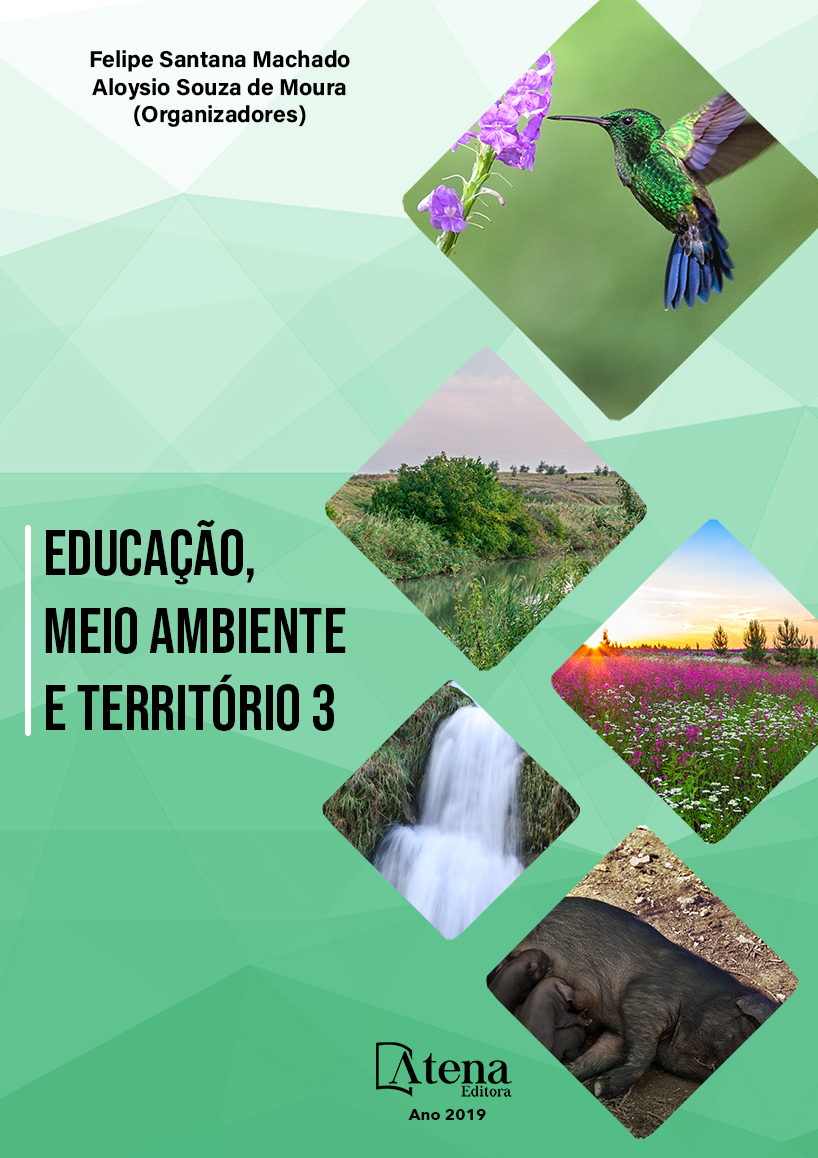
TÉCNICAS DE SENSORIAMENTO REMOTO UTILIZADAS NA IDENTIFICAÇÃO DE ÁREAS COM LAVOURAS, ANÁLISE PARA O MUNICÍPIO DE JAGUARI/RS
O presente trabalho tem como
objetivo geral mapear, quantificar e analisar as
áreas com distintos usos da terra no município
de Jaguari/RS, focando no detalhamento das
áreas de lavouras (e lavouras em áreas úmidas),
visando verificar, inclusive, a disponibilidade
dos recursos hídricos a estas. Justifica-se a
importância desse estudo, principalmente a fim
de analisar as características gerais de Jaguari
no que tange ao mapeamento das áreas
de lavouras e a relação da disponibilização
dos recursos hídricos (rios Jaguari e ao
Jaguarizinho). Para isso, utilizaram-se: o
aplicativo ArcGIS®, imagens do sensor Landsat
8 (Órbita/Ponto das imagens é a de 223/80
datadas em 14 de julho de 2014 e a outra em 14
de dezembro de 2014) e uma planilha eletrônica
(Excel®). Assim, com a aplicação de técnicas
de Processamento Digital de Imagens (PDI),
houve a classificação dos usos da terra, com o
algoritmo Maximo Verossimilhança. Com isso,
analisaram-se as áreas próximas aos principais
corpos hídricos do município, por meio de um
buffer de 1 km em relação às suas margens.
No total, quantificou-se 22,3% da área total
como lavouras e 20,1% de áreas úmidas, e, por
meio da extração das áreas de lavouras mais
expressivas, maiores de 5 ha, verificou-se que
a maioria das áreas úmidas estão dispostas às
margens dos dois principais rios do município
(cerca de 86%). Assim, após a análise global
de todos os resultados, destaca-se que há
uma grande importância do rio Jaguari e do rio
Jaguarizinho à agricultura do local, tanto nas
áreas classificadas como lavouras, como às
áreas úmidas, na qual, podem ser denotadas,
como áreas de cultivo orizícola.
TÉCNICAS DE SENSORIAMENTO REMOTO UTILIZADAS NA IDENTIFICAÇÃO DE ÁREAS COM LAVOURAS, ANÁLISE PARA O MUNICÍPIO DE JAGUARI/RS
-
DOI: 10.22533/at.ed.44219210224
-
Palavras-chave: LANDSAT-8, Sistema de Informações Geográficas, Geotecnologias.
-
Keywords: LANDSAT-8, Geographic Information System, Geotechnology.
-
Abstract:
This paper, has the general
objective performing mapping, quantifying and
the analysis areas with different land uses in
the municipality of Jaguari / RS, with the focus
of detail the analysis of areas of crops (and
crops located in wetlands) with the focus check,
including the availability of water resources for
crops. Justified of the present paper, mainly by
the fact analyze the general characteristics the
city of Jaguari, referring the question on mapping
Educação, Meio Ambiente e Território 3 Capítulo 24 243
the areas of crops and the relationship of the availability of water resources (rivers Jaguari
and Jaguarizinho). For this, were used: ArcGIS® the application, Landsat sensor 8
images (Orbit/Point: 223/80, the dates of July 14, 2014 and December 14, 2014) and a
spreadsheet (Excel). Thus, with the application of Digital Image Processing techniques
(PDI) was performed the image classification (in land use and occupation) Maximum
Likelihood with the algorithm (MAXVER). With that, analyzed areas around to the main
rivers of the city, with the application a buffer of 1 km in relation to the river. In total,
were quantified 22.3% of the total area the city as crops and 20.1% as wetlands, and
through extracting the areas more expressive crops (larger area) over 5 ha, verified
most wetlands are located along the rivers the city (approximately 86%). Thus, after
analysis all results we highlight there is a great importance River Jaguari and River
Jaguarizinho for agriculture the municipality, both areas classified with occupancy of
crops, as in wetlands, in which, may be denoted, as rice cultivation areas.
-
Número de páginas: 15
- Patrícia Ziani
- Romario Trentin
- Bruno Zucuni Prina


